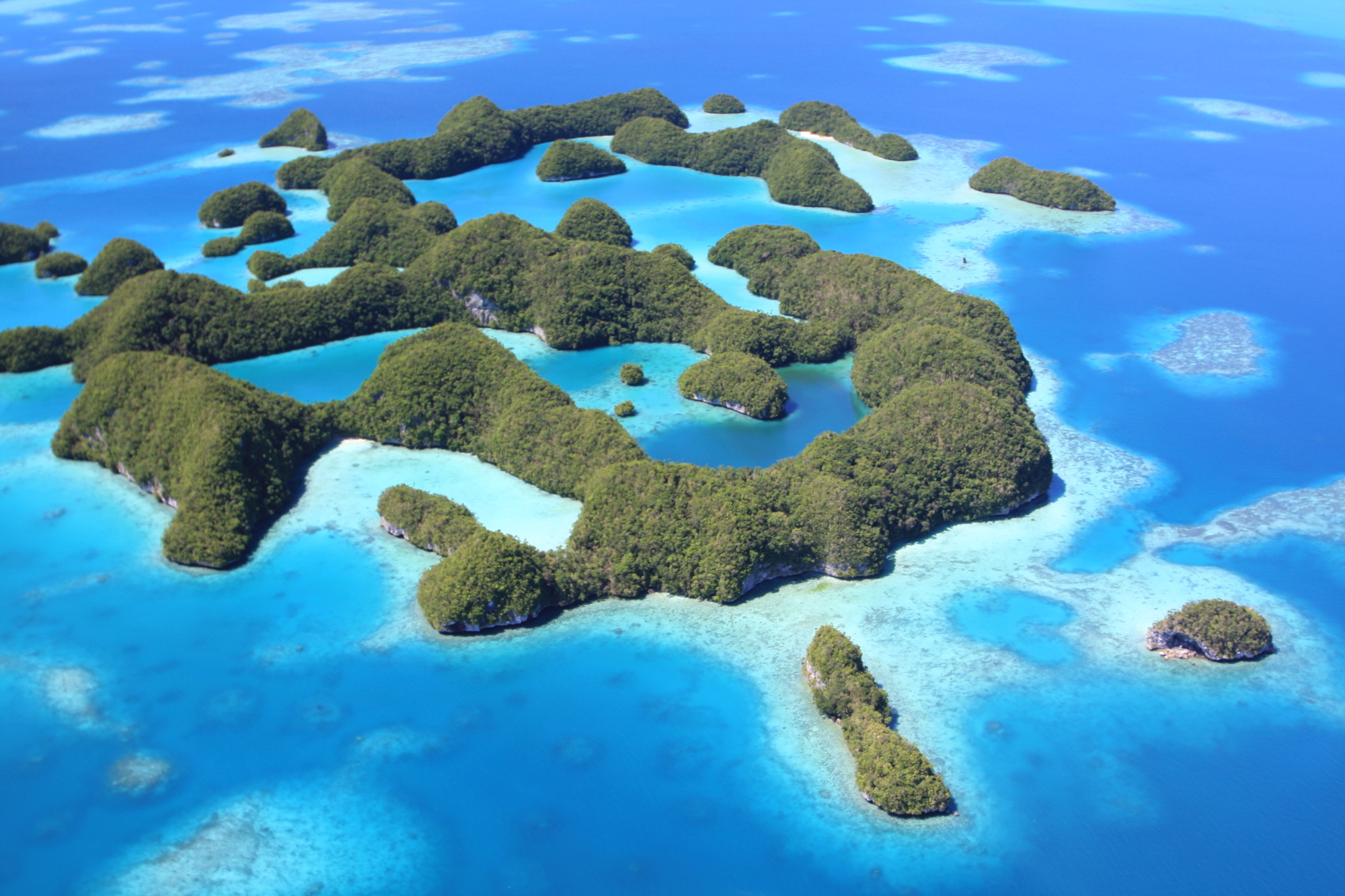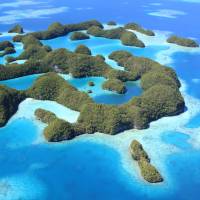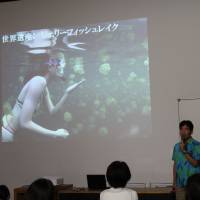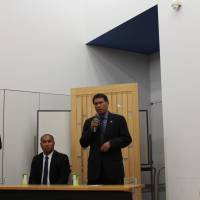Palau has boosted its efforts to preserve its rich maritime environment for generations to come, with some of the measures including the introduction of environmental protection taxes and education for children, an official from the Tokyo branch of the country's tourism office said at a recent seminar in Tokyo.
The island country in the Western Pacific boasts the Rock Islands Southern Lagoon, which was designated in 2012 as a mixed World Heritage site; one of only 35 such sites in the world that feature elements of both natural and cultural significance.
"It's like an aquarium in the sea, given the amazingly diverse species," Tsuyoshi Shibamura, marketing and sales coordinator of the Palau Visitors Authority Japan Office, told an audience at the Minato City Eco-Plaza on June 22.
In the area, which covers about 100,000 hectares with 445 uninhabited limestone islands of volcanic origin, 746 species of fish, over 385 species of coral, as well as at least 13 species of sharks and manta rays can be found, according to UNESCO.
At the seminar titled "Palau with a World Heritage site; a small country's unique efforts on tourism development and nature conservation," Shibamura introduced many unique spots, including Jellyfish Lake, the Milky Way Lagoon known for its white mud, Blue Corner dive site and Ngardmau Waterfalls.
"Speaking of jellyfish, there are species in Palau that live in a lake, not the sea," he said. This unique environment protects them from predators, so the jellyfish there have weakened stings and poison, enabling visitors to swim with them, he added.
However, the lack of rain last year made the lake saltier and raised the water temperature, causing the jellyfish to disappear, Shibamura said. Fortunately, the larva at the bottom of the lake have gradually grown, and visitors could possibly see jellyfish again next year, he noted.
Attracted by its beautiful sea and the World Heritage site, as well as its hidden rich nature, around 30,000 Japanese visited Palau in 2016, logging about a 50 percent increase from 1997, Shibamura said.
To preserve its invaluable environment, a number of authorities, including the state of Koror hosting the Rock Islands, impose taxes on travelers, according to Shibamura.
"We have a philosophy to make continuous efforts to preserve this nature for the next 100, and even 200, years," he said.
The $50 Rock Island permit, valid for 10 days, is necessary to visit, while travelers are required to pay a $30 Green Fee when they depart the country, Shibamura explained.
Additionally, further promotional efforts are necessary to educate local people on reasons why nature is so important, he stressed. He added relevant authorities have created DVDs so that children can also understand that.
"We need to let them know that nature is Palau's valuable asset," Shibamura said.
The seminar was the seventh in a series introducing eco-friendly lifestyles promoted by various countries around the world. The Minato City Eco-Plaza and The Japan Times jointly organize the seminars in cooperation with embassies in Tokyo.
At the outset of the seminar, Palau's Ambassador Francis Mariur Matsutaro spoke of the Pacific country's close ties with Japan, dating back more than 100 years.
"In April 2015, we had the great honor to welcome their Majesties Emperor (Akihito) and Empress (Michiko) to Palau, on the occasion of the 70th anniversary of the war in the Pacific."
Japan governed Palau from 1920 until the end of World War II in 1945. Imperial troops battled American forces there in the fierce Battle of Peleliu from September to November 1944.






















With your current subscription plan you can comment on stories. However, before writing your first comment, please create a display name in the Profile section of your subscriber account page.